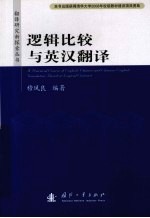图书介绍
逻辑比较与英汉翻译【2025|PDF|Epub|mobi|kindle电子书版本百度云盘下载】

- 穆凤良编著 著
- 出版社: 北京:国防工业出版社
- ISBN:9787118062397
- 出版时间:2009
- 标注页数:496页
- 文件大小:18MB
- 文件页数:511页
- 主题词:英语-翻译
PDF下载
下载说明
逻辑比较与英汉翻译PDF格式电子书版下载
下载的文件为RAR压缩包。需要使用解压软件进行解压得到PDF格式图书。建议使用BT下载工具Free Download Manager进行下载,简称FDM(免费,没有广告,支持多平台)。本站资源全部打包为BT种子。所以需要使用专业的BT下载软件进行下载。如BitComet qBittorrent uTorrent等BT下载工具。迅雷目前由于本站不是热门资源。不推荐使用!后期资源热门了。安装了迅雷也可以迅雷进行下载!
(文件页数 要大于 标注页数,上中下等多册电子书除外)
注意:本站所有压缩包均有解压码: 点击下载压缩包解压工具
图书目录
UNIT 1 Introduction1
Ⅰ Description of Translation Course1
Ⅱ What Is Translation?4
Ⅲ Historical Review7
Ⅳ Theoretical Divergences and Different Translations12
Reflections and Practice19
UNIT 2 Mismatch24
Ⅰ Reviewing What Translation Is25
Ⅱ Mismatches and Poor-practice26
i Mismatches28
ii Mismatches in Tsinghua University English Proficiency Test Ⅰ37
iii Mismatches in Tsinghua University English Proficiency Test Ⅱ39
iv Matches and mismatches in grade eight test for English majors40
Ⅲ Chewing Process in Translating44
Ⅳ Mismatch on Purpose48
Ⅴ How to Avoid Unacceptable Mismatches?51
Reflections and Practice52
UNIT 3 Translation Norm56
Ⅰ Issues57
Ⅱ Who or What Are the Authorities?58
i The ring of philosophy58
ii The ring of linguistics60
iii The ring of culture61
iv Translation proper63
Ⅲ Meta-theory and Indefinite Outputs in Translation67
Ⅳ Translation Skills and Cases68
Ⅴ Some Trade Ethics:Top 8 Lessons for Translators73
Reflections and Practice75
UNIT 4 The Minimal Translation Unit:Diction83
Ⅰ The Magic of Words:Arbitrariness vs.Iconicity84
Ⅱ Eight Approaches to Translate at Word Level91
i Image-based characters91
ii Symbol-based translation92
iii Sound-based translation or transliteration92
iv Free translation93
v Literary translation94
vi Translation with substituted cultural images94
vii Explanation95
viii Zero translation96
Ⅲ Easily Confused E-C and C-E Word Level Correspondence96
Ⅳ Translatable vs.Untranslatable100
Ⅴ Canonization102
Reflections and Practice103
UNIT 5 The Principle of Causality112
Ⅰ Causal Relationship113
Ⅱ Causal Sequence114
Ⅲ The Causal Model:"Because-therefore"Information Sequence in Chinese117
Ⅳ Application of the Principle of Causality121
Reflections and Practice123
UNIT 6 The Principle of Sequence129
Ⅰ Adverbial Clause of Time131
Ⅱ Adverbial Clause of Condition135
Ⅲ Adverbial Clause of Purpose137
Ⅳ Adverbial Clause of Concession139
Ⅴ Deductive vs.Inductive140
Reflections and Practice143
UNIT 7 The Principle of Size and the Principle of Importance148
Ⅰ The Principle of Size149
i Subordinate clause is before main clause in Chinese151
ii Antecedent as a form subject in English should not be translated152
iii More application with the principle of size153
Ⅱ The Principle of Importance155
i Which is important:time or place?156
ii More spatial orders157
iii Psychological orders158
Reflections and Practice160
UNIT 8 The Principle of Rhythm and Rhyme and the Principle of Parallel Coupling166
Ⅰ The Principle of Rhythm and Rhyme166
Ⅱ The Principle of Parallel Coupling177
Ⅲ Poetry Translation Appreciation184
Reflections and Practice188
UNIT 9 The Principle of Phrase Coagulation and the Principle of Abstract and Concrete193
Ⅰ The Principle of Phrase Coagulation194
i Syntactic adjustments from Chinese into English195
ii Syntactic adjustments from English into Chinese200
Ⅱ The Cause of Abstraction and Specification201
i Noun-centered English vs.verb-centered Chinese201
ii Static vs.dynamic201
iii English modification and Chinese predication202
iv Subject-prominent English vs.topic-prominent Chinese203
v On predicate205
vi English in tree structure vs.Chinese in bamboo structure207
Ⅲ The Principle in Dealing with Cases of Abstract and Concrete209
i Abstraction vs.specification210
ii Specification by turning abstract subjects into attributives,predicates or predicatives210
iii Specification by adding a specific noun to the abstract noun211
iv Specification by adding a noun to the specific noun212
v Specification by adding a verb to noun or adjecfive213
Reflections and Practice214
UNIT 10 Logical Connotation in Tenses,Articles,Moods,Negation and Punctuation221
Ⅰ Different People,Different Feelings,Different Presentation222
Ⅱ Sequential Time vs.Synchronic Time224
Ⅲ Physical and Virtual Space227
Ⅳ Definite and Indefinite Articles in Translation229
Ⅴ Negation & Affirmation231
Ⅵ Punctuation234
Reflections and Practice235
UNIT 11 Translation of Literature240
Ⅰ Humanity242
Ⅱ Ideological Attitude243
Ⅲ Manipulative Nature of Language249
Ⅳ Sense and Sensitivity251
Ⅴ Some Translation Approaches254
i To be graceful in translating255
ii To be logical in translating257
Ⅵ Title Translation268
Reflections and Practice269
UNIT 12 Translation of Scientific Writings273
Ⅰ Art and Science274
Ⅱ English of Science and Technology277
i English technical terms279
ii Specialize280
Ⅲ Characteristic Syntax of EST and Translation280
i Splitting the long and complicated sentences280
ii Merging282
iii The post-position of the attributive289
iv Complex compounds290
v Extensive use of impersonal passive voice294
vi More non-finite forms of the verb301
vii Different uses of the tense301
Ⅳ Logic-based translation in science and technology302
Reflections and Practice316
UNIT 13 Translation of Advertisement326
Ⅰ Duality in Advertisement327
Ⅱ Quality of Advertisement331
i Easy to remember331
ii Advertisement by a model copy332
Ⅲ Domestication of Advertisement333
Ⅳ Stylistic Features in Advertisement333
i Positive adjectives333
ii Strange coined words for curiosity334
iii Violation of grice paradigm at surface but abiding in practice334
iv Acronym and complex compound words335
v Either graceful or colloquial335
vi More shorter sentences336
vii More parataxis336
viii More ellipsis336
ix More imperatives336
x More active voice and present tense337
xi Rhetorical means337
Ⅴ Soft-sale Advertisement339
Ⅵ Hard-sale Advertisement340
Ⅶ Lonely Hcarts Ads341
Reflections and Practice344
UNIT 14 Discourse Contrast of English and Chinese in Letter Correspondence348
Ⅰ Thinking Contrast348
Ⅱ Making Sense of Letters350
i A covering letter350
ii A covering letter in better format351
iii A personal statement351
iv A recommendation letter359
v A case from Radio Australia361
vi A case from mitch363
vii The fire ignited by English364
viii Formal letter to an editor365
ix Transfer application366
Reflections and Practice371
UNIT 15 From Translation to Interpretation392
Ⅰ The Difference between Translation and Interpretation392
Ⅱ Training for Professional Interpreting and Note-taking393
Ⅲ Simultaneous Interpreting vs.Speech Making396
Ⅳ Practical Cases from CCTV 05-07398
Ⅴ Interpreting Jokes and Speeches404
Reflections and Practice414
Appendix Keys to Reflections and Practice422
Bibliography491
热门推荐
- 353778.html
- 3421035.html
- 2141135.html
- 1593035.html
- 887459.html
- 389043.html
- 817233.html
- 2591094.html
- 941647.html
- 2056153.html
- http://www.ickdjs.cc/book_988825.html
- http://www.ickdjs.cc/book_200378.html
- http://www.ickdjs.cc/book_842089.html
- http://www.ickdjs.cc/book_785907.html
- http://www.ickdjs.cc/book_1084013.html
- http://www.ickdjs.cc/book_2427354.html
- http://www.ickdjs.cc/book_1133411.html
- http://www.ickdjs.cc/book_2454462.html
- http://www.ickdjs.cc/book_672487.html
- http://www.ickdjs.cc/book_627288.html